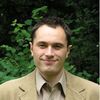
Krzysztof Niedzialkowski
- Course: PhD in Environmental Social Science
- PhD title: Concerning environment and nature conservation in Poland
- Year of graduation: 2013
- Nationality: Polish
Please briefly comment why you chose Leeds for Postgraduate Research Degree Study.
The main reason for choosing Leeds was a possibility to carry out my research under the supervision of recognized experts in the field. I also chose the Sustainability Research Institute because of its interdisciplinary character and experience with the social investigation of nature conservation problems. I was an international student, so the flexibility and support of the SRI administration regarding the way my studies were organized, was also a significant issue for me.
What is it that makes you passionate about your area of study?
It is a combination of my values and curiosity. I am concerned about the preservation of natural resources, but at the same time, I am aware of difficult social issues involved. Environmental social science helps to acknowledge both of these dimensions and produce some ways forward. Engaging with different actors involved in nature conservation is an exciting part of the process.
How do you think a PhD degree has helped you develop both personally and in your career?
Before starting my studies in Leeds I had been involved in practical nature conservation policy-making in Poland. Approaching this issue from a scientific perspective helped me to create a much more comprehensive vision of the policy development as well as of the motivations and strategies of actors involved. I started thinking in a critical way which challenged some of the things I had taken for granted. In terms of my career, studying in Leeds and in the UK, in general, opened a new research and teaching possibilities. I feel well prepared to design and carry out research projects which will yield publications of interest for the international scientific community.
Please give a brief profile of your career path to your current job.
My background is in economics and legal studies. After graduation, I was working as a legal and external funding specialist at a research institute in Poland. I was also involved in managing nature conservation projects and in developing nature conservation policies. This experience motivated me to look at nature conservation from a social science perspective. I completed my PhD in 2013 and came back to the research institute I had worked for in Poland, this time as a researcher. Skills and knowledge I gained during my studies in Leeds helped me to become a key investigator in an international research project concerning nature conservation and ecosystem services governance called LINKAGE.
What are the challenges and rewards of your current job?
The major challenge I am facing is acknowledging and promoting an interdisciplinary research concerning environment and nature conservation in Poland. With relatively few social scientists investigating environmental issues in my country, there is a large field to explore.
What direction do you want your career to go in the future?
I would like to continue my academic career and engage in research projects investigating social aspects of biodiversity conservation and sustainable development. I hope that the results of these projects will contribute to the better informed and juster policy-making.

